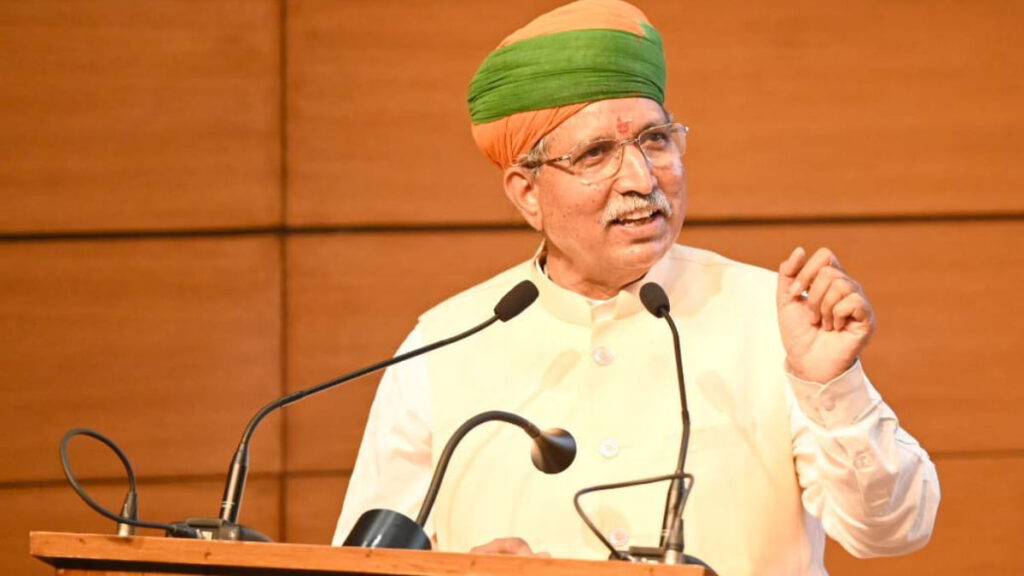The Union Minister of Law and Justice, Arjun Ram Meghwal, recently shared his insights on the newly implemented Unified Pension Scheme (UPS) during an event on Sunday. His remarks also touched upon the three new criminal laws that took effect last month. Meghwal emphasized the historical context of penal laws in India, stating that the British imposed punitive measures on Indian citizens, which led to the introduction of the penal code. In contrast, he highlighted that Prime Minister Narendra Modi’s government aims to deliver justice through the new justice code, marking a significant difference.
Critique of Previous Policies
During his address, Minister Meghwal did not hold back in critiquing the previous administration led by former Prime Minister Dr. Manmohan Singh. He asserted that Singh had failed to address anything related to the new pension scheme. Meghwal stated, “As soon as Narendra Modi came into power, the Congress party started searching for issues to campaign on, particularly focusing on employee welfare.” He positioned the current government’s approach as proactive compared to the Congress’s reactive stance.
The Origin of the Unified Pension Scheme
Formation of the Committee
Meghwal explained that the need for the UPS arose in 2014 when the Modi administration assumed office. He mentioned that due to a lack of substantial issues from the Congress party, they resorted to discussing employee welfare. In response, the Prime Minister established a committee chaired by the Finance Secretary, which has led to the recent decision on the pension plan.
Benefits of the Unified Pension Scheme
He confirmed that both the new and old pension schemes would coexist, allowing individuals to opt for the UPS if they find it more beneficial. Meghwal articulated the advantages of the UPS, stating, “The continuity of the old pension plan will remain while offering a variety of benefits under the new scheme.” He reassured that those who find the UPS advantageous can adopt it at their discretion.
Decision-Making Process
Delving into the cabinet’s decision, Meghwal explained that the proposal for the Unified Pension Scheme was reached after extensive discussions among various stakeholders, including state finance secretaries and labor organizations. This collaborative effort culminated in the cabinet’s decision to include the UPS as a part of the nation’s pension framework, reinforcing that the government is committed to addressing the welfare of laborers, the public, and the nation at large.
Conclusion
The introduction of the Unified Pension Scheme symbolizes a step forward in the Indian government’s efforts to modernize and improve pension systems for its citizens. With the aim of providing justice and timely support to the workforce, the scheme is designed to cater to the evolving needs of the citizens, ensuring their financial well-being in the future.
